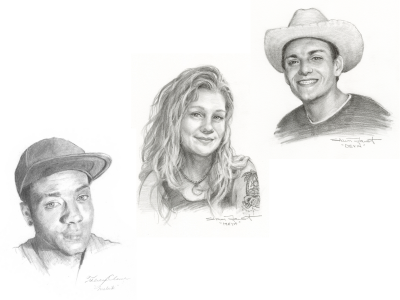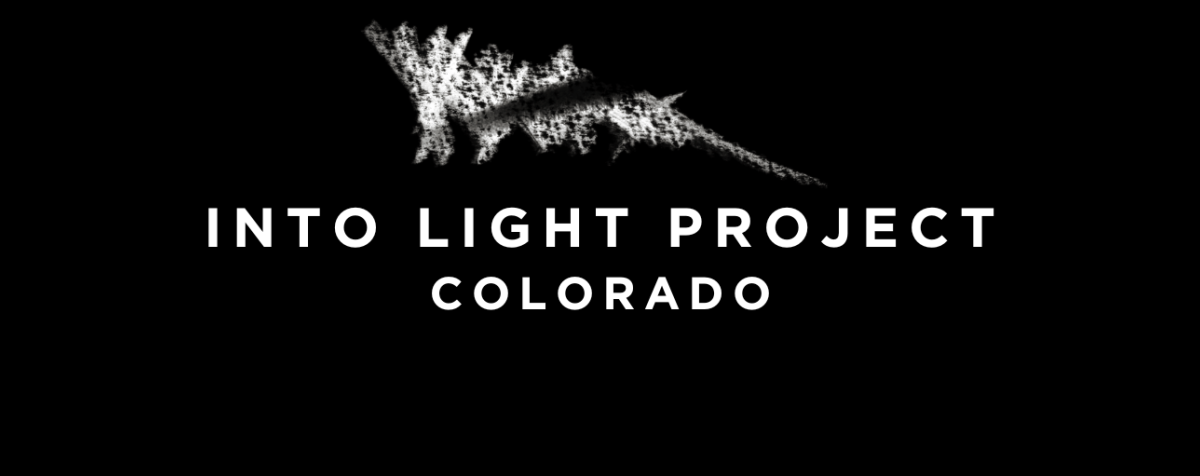INTO LIGHT Project Colorado
People with addiction continue to be blamed for their disease, which prevents 90% of those with Substance Use Disorder (SUD) from seeking help. INTO LIGHT Project, a national non-profit organization is dedicated to changing the conversation about drug addiction.
By creating public exhibitions of original portraits and individual stories of people who have died from the disease of drug addiction in locations around the country, we provide communities with an opportunity to talk about the issue of stigma, the primary obstacle to getting support and treatment for those with SUD and their families. INTO LIGHT Project is art activism in the purest sense.
Gallery Opening Reception
August 31, 2023 5:00-7:00
Register HERE
Traveling Gallery
August 31 to September 22 - University of Denver Museum of Anthropology (DUMA) - Sturm Hall Room 102
September 23 to October 1 - Gallery transitioning
October 2 to October 20 - Anderson Academic Commons - Dean's Suite Area Northeast corner on the Upper Level
October 21 to October 29 - Gallery transitioning
October 30 to November 17 - Community Commons - Gallery Room 1001 Directly across from Starbucks

According to the CDC and National Center for Drug Abuse Statistics:
- Since 1999 more than 932,000 Americans died from drug overdose/poisoning
- More than four times as many people died from drug overdose than from homicide in the first month of 2021, exceeding homicides by 306.7%. Overdoses kill more Americans than car crashes or gun violence.
- In 2021, 24 million people in the United States met the DSM-5 criteria for having a drug use disorder
- In 2021, 94% of people aged 12 or older with a substance use disorder did not receive any treatment.
- Provisional data from CDC's National Center for Health Statistics indicate there were an estimated 107,622 drug overdose deaths in the United States during 2021, an increase of nearly 15% from the 93,655 deaths estimated in 2020 and an increase of 781% since 1999.
- Overall life expectancy in the U.S. has declined for three years in a row due in large part to the opioid epidemic.
- Illicitly manufactured fentanyls (IMFs) were the main driver of drug overdose deaths Between 2019 and 2020 there was a 56% increase in rates of drug overdose deaths that involved IMFs.
- All demographic groups experienced more overdose deaths during 2021, particularly males, younger age groups and communities of color. Ages 15-24 showed the largest increase at 48%.
- In 2020, the overdose death rate among Black males 65 years and older was nearly seven times that of White males 65 years and older.
- Black people 15-24 years old experienced the largest rate increase (86 percent) of overdose death in 2020.
- Overdose death rates for American Indian and Alaskan Native (AI/AN) women 25-44 years of age were nearly two times that of White women 25-44 years of age.
- Only about one in every ten AI/AN and Hispanic people received substance use treatment, evidence of treatment was even lower for Black people (one in every twelve)
- People of color report lower treatment rates and are more likely to be prescribed methadone which can be a stigmatized and logistically burdensome treatment.
- Drug misuse and addiction cost American society more than $740 billion annually in lost workplace productivity, healthcare expenses, and crime-related costs.
Colorado
- 1,799 people fatally overdosed in Colorado, in 2022
- The number of fentanyl-related deaths quadrupled between 2019 and 2021.
- More Coloradans died after ingesting fentanyl in 2022 than overdosed on all drugs in 2016.
- Colorado has spent millions to distribute naloxone, which is used to reverse opioid overdoses, and lawmakers passed a bill to provide free doses to a broader group of entities, including schools.
- Lawmakers also set aside several hundred thousand dollars to buy fentanyl test strips.
INTO LIGHT PROJECT will continue its mission by documenting the faces and sharing the stories of those who have suffered and needlessly died from the disease of addiction. The stigma around drug addiction must change so those who need it can get the quality treatment they deserve for their illness.
